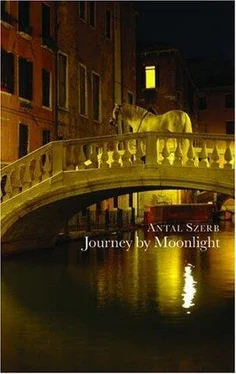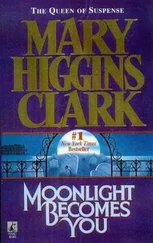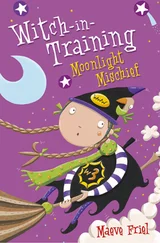His doctors later agreed that the nervous fever was the result of exhaustion. It was little wonder. For fifteen years Mihály had systematically driven himself too hard. He had forced himself to become something other than what he was, to live never after his own inclination but as he was expected to. The latest and not least heroic of these exertions had been his marriage. Then the excitement of travel, and the wonderful series of unwindings and unfoldings which the Italian landscape had induced in him, together with the fact that throughout his honeymoon he had drunk practically non-stop and never taken enough sleep, all had contributed to the collapse. Essentially, it was a case of a man not realising how tired he is until he sits down. The accumulated exhaustion of fifteen years had begun to overwhelm him from that time in Terontola when he involuntarily, but not unintentionally, took the other train, the train that carried him ever further from Erzsi, towards solitude and himself.
One evening he arrived in one of the larger hill towns. By then he was in such a surreal state of mind that he never enquired after the name, being all the more reluctant to do so since he had realised, around midday, that he could not remember a single word of Italian — so we need not record the name of the town. In the main square stood a friendly-looking albergo , where he called in, and dined with a perfectly good, normal appetite on gnocchi in tomato sauce, the local goat’s cheese, oranges and white wine. But when the time came to pay he noticed the waitress looking at him suspiciously and whispering with two other people sitting in the room. He instantly rushed out, then roamed restlessly up and down on the scrubby macchia -covered hill above the town until, forced to leave by a howling wind, he let himself down a steep hillside.
He ended up in a deep, well-like valley where the wind was less fierce. But the place was so closed-in, so dark and desolate it would have seemed to him quite natural to come upon a few skeletons, with a royal crown amongst them, or some other bloody symbol of ancient dignity and tragedy. Even in his normal mind he was highly susceptible to the mood of place: now he was ten times so. He ran headlong out of the deep recess, then became exhausted. A pathway led him up a gentle hill. Arriving at the top he stopped at the base of a low wall. It was a friendly, inviting place. He jumped up on to the wall. So far as he could see, by the weak light of the stars, he was in a garden, in which fine cypress trees grew. A small mound beside his foot offered itself as a natural pillow. He lay down and immediately fell into a deep sleep.
Later the starlight grew much stronger. The stars became so bright it was as if some strange disturbance filled the sky with energy, and he awoke. He sat up, looked hesitantly around in the eerie luminosity. From behind a cypress tree, pale and melancholy, stepped Tamás.
“I must go back now,” Tamás said, “because I can’t sleep under this terrible starlight.” Then he moved away, and Mihály wanted to rush after him, but could not get onto his feet, however much he struggled.
He awoke at dawn, with cold and the first light, and looked sleepily around the garden. At the foot of the cypress trees, extending in all directions, stood crosses marking graves. He had slept in the town’s garden of rest, the cemetery. Nothing could have been more horrible. By day, and perhaps also by moonlight, the Italian cities of the dead were indeed perhaps more friendly and inviting than those of the living, but for Mihály the episode had a horrific symbolic meaning. Again he fled in terror, and from that moment one might properly date the onset of his illness. What happened to him afterwards he was unable to recall.
On the fourth, fifth or perhaps sixth day, on a narrow mountain path, he became aware of the sunset. The pink and gold hues of the setting sun were, to his fevered condition, quite overwhelming, even more so perhaps than when he was rational. In his saner moments he would have been ashamed to respond so strongly to the familiar, banal and utterly meaningless colours of the sky. But as the sun went down behind a mountain he suddenly clambered impulsively onto a rock, seized with the feverish notion that from its top he would be able to watch for a little longer. In his clumsiness he took a wrong hold and slithered down into the ditch beside the road, where he no longer had the strength to get up. There he remained prostrate.
Luckily, towards dawn some peddlers came by on mules, saw him lying in the moonlight, recognised the genteel foreigner and with respectful concern took him down to the village. From there the authorities sent him on, with many changes of transport, to the hospital at Foligno. But of this he knew nothing.
WHEN HE RECOVERED consciousness he was still unable to speak a word of Italian. In a weary, timorous voice, using Hungarian, he asked the nurse the usual questions: where was he, and how had he got there? The nurse being unable to reply, he worked out for himself — it was not very difficult — that he was in hospital. He even remembered the strange feeling he had experienced in the mountains, and grew calmer. All he wanted to know was, what was wrong with him? He felt no pain, just very weak and tired.
Luckily there was in the hospital a doctor who was half English, and who was called to his bed. Mihály had lived in England for many years and the language flowed in his veins, so much so that it did not desert him now, and they could communicate fully.
“There’s nothing wrong with you,” said the doctor, “just horrendous exhaustion. What were you doing, to get yourself so tired?”
“Me?” he asked, meditatively. “Nothing. Just living.” And he fell asleep again.
When he woke again he felt a great deal better. The English doctor visited him again, examined him, and informed him there was nothing wrong and he would be able to get up in a few days.
The doctor was interested in Mihály and talked with him a great deal. He was keen to establish the cause of his extreme exhaustion. He gradually became aware how little comfort Mihály took in the thought that he would be well in a few days and would have to leave the hospital.
“Do you have business in Foligno or the area?”
“Not at all. I had no idea there was such a place as Foligno.”
“Where will you go? Back to Hungary?”
“No, no. I’d like to stay in Italy.”
“And what would you want to do here?”
“I haven’t the faintest idea.”
“Do you have any relations?”
“No, no-one,” said Mihály, and, in his state of nervous debilitation, burst into tears. The tender-hearted doctor felt extremely sorry for this poor abandoned soul and began to treat him with even greater kindness. But Mihály had not wept because he had no relations, just the opposite — because he had so many — and he feared he would not long be able to preserve the solitude he so much enjoyed in the hospital.
He told the doctor that all his life he had longed to be in bed in a hospital. Of course not seriously ill or suffering, but as at present, just lying there in passive and involuntary exhaustion, being nursed, without purpose or desire, far from the normal business of men.
“It’s no use. Italy has everything I ever longed for,” he said.
It became apparent that the doctor shared his love of historical connections. By degrees he came to spend all his free time at Mihály’s bedside, in historical discussions that flitted about lethargically. Mihály learnt a great deal about Angela da Foligno, saint and mystic, the most famous daughter of the town, who was virtually unheard of in Foligno itself. And he came to know a lot about the doctor, since, as with all Englishmen, his family history proved rather colourful. His father had been a naval officer who had caught yellow fever in Singapore, was tormented in his delirium with terrible visions, and on his recovery turned Catholic, thinking that would be the only way he could escape the torments of the devil. His family, a religious one consisting for the most part of Anglican clergymen, rejected him, whereupon he became fiercely anti-British, left the Navy, joined the Italian merchant service, and later married an Italian woman. Richard Ellesley — that was the doctor’s name — had spent his childhood in Italy. From his Italian grandfather they inherited a considerable fortune, and his father had educated the young Ellesley at Harrow and Cambridge. During the war the old man went back into the British Navy, fell at the battle of Skagerrak, the fortune evaporated, and Ellesley had to earn his living as a doctor.
Читать дальше












